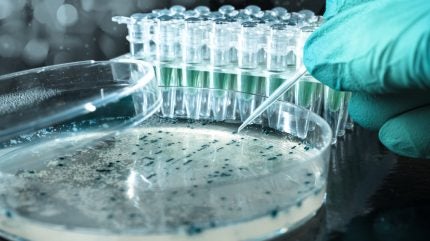
Genetically modified bacteria are set to revolutionise a variety of sectors by enabling the creation of sustainable solutions like precision therapies, biofuels and biodegradable materials, according to a new report.
GlobalData’s Bacteria: The Next Big Disruptor? report notes that bacteria engineered for specific functions are already becoming increasingly important in sectors like healthcare, agriculture, energy and environmental management. Their adoption being is fuelled by the demand for low-cost, low-impact solutions.
Kiran Raj, practice head of disruptive tech at GlobalData, commented: “Advances in synthetic biology and genetic engineering position bacteria as catalysts in the sustainability revolution. Bacterial technologies could significantly cut emissions and drive cost savings as industries prioritise sustainability.”
Of the advancements in the environment and energy sectors already, the report states: “Engineered bacteria are reshaping the energy sector by converting waste and CO₂ into biofuels, sustainable aviation fuel and biodegradable plastics – offering scalable, carbon-negative solutions. In the construction industry, bacterial biocement is being used to create low-carbon bricks, significantly reducing the environmental impact of building materials.”
In the long term, beyond ten years, it expects: “Large-scale deployment of bacterial bioremediation and enzymatic recycling addresses pollution control,” and: “Full-scale deployment of bacteria-driven fuel cells and biofuels redefines energy sustainability.”
In healthcare, engineered bacteria are driving breakthroughs in targeted drug delivery and CRISPR-based therapies for cancer and genetic disorders. In the mid-term, fusion proteins and novel bacterial strains can be expected to enhance treatment precision and broaden probiotic use, while looking further to the future, the report suggests advanced genetic engineering and microbiome management will prevent and manage chronic diseases with personalised bacterial therapies.
Elsewhere, bacterial inoculants and biofertilizers will enhance crop yields while reducing reliance on chemical inputs in agriculture, and self-healing bacterial concrete will enables resilient infrastructure in construction.
Raj added: “The integration of microbial technologies across these industries is crucial for their future, but success hinges on continued research, strategic partnerships, and the scalability of these innovations to meet global demands.”
The report states, however, that the technology can be expected to face challenges.
“Regulatory hurdles, high costs, scalability issues, public scepticism and integration difficulties are slowing the widespread adoption of bacteria-based technologies,” it notes.




